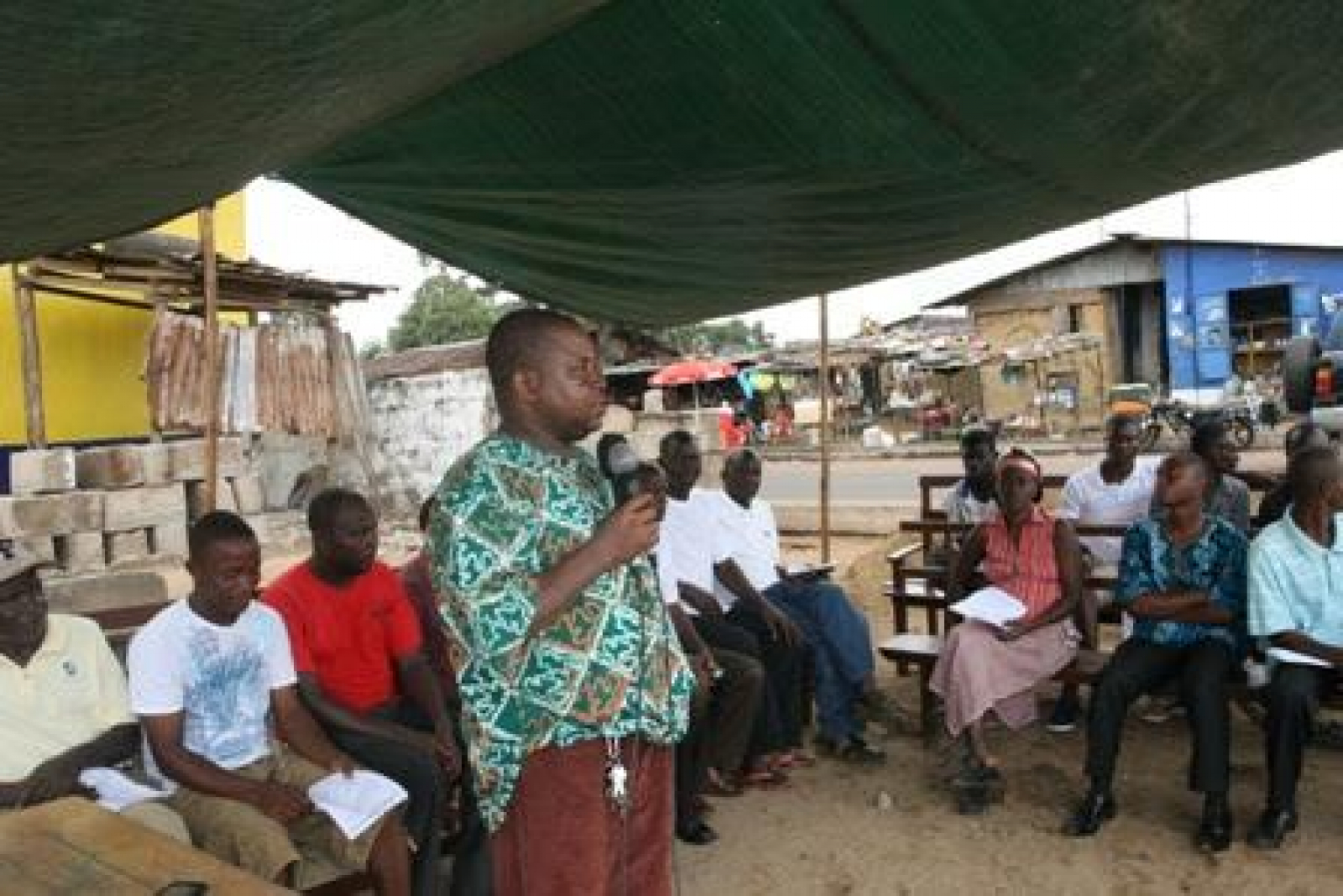
SHARE
ISSUES
In response to the worst outbreak of the Ebola virus in history, a group of civil society organizations (CSOs) in Liberia has established a task force to help coordinate efforts to prevent the spread of the disease. Its goal is to encourage quicker action at the community level, where responses have been slow.
A September report from the World Health Organization said that “community engagement is the cornerstone of a more effective response. Where communities take charge, especially in rural areas, and put in place their own resolutions and protective measures, Ebola transmission has slowed considerably.”
Task force members are the CSO Consortium on Natural Resource Management (NRM), the Southeastern Women Development Association (SEWODA), and the Liberia CSOs Water, Sanitation & Hygiene Network (WASH). These organizations have worked closely with NDI in the past and will be carrying out their Ebola response efforts through NDI sub-grants funded by the Embassy of Sweden in Liberia.
The groups have a three-pronged program to help improve the local response to the epidemic. Working with local leaders and citizens, the task force will facilitate the development of community-specific action plans. Community members will then present the plans to their legislators to ensure that the plans are linked to the larger national strategy, and to discuss how their lawmakers can support the implementation of the plans. Throughout this process, the task force will record citizens’ experiences with the public health system to identify problem areas, provide authorities the information they need to improve the Ebola response and help reform Liberia’s public health sector after the outbreak has been contained.
The Liberia Media for Democratic Initiatives (LMDI), a democracy support and media organization that partners with NDI, will produce regular radio updates on task force efforts to stem the spread of the disease.
“With more than 1,500 civil society organizations and over 900 community-based organizations in the country, the government must tap into this framework to ensure that its messages reach even the most marginalized and isolated communities,” said WASH chair Prince Kreplah in a recent article in Devex -- a leading blog on international development issues.
The WASH Network is a group of civil society organizations that works to improve access to safe drinking water and encourage better sanitation and hand washing practices. Since the Ebola outbreak, the network has refocused its efforts to raise awareness of proper hand washing and burial practices and encourage communities to work in coordination with local governments to fight Ebola.
“We can’t lose this battle,” wrote Kreplah. “We need to scale up the response immediately to ensure that people do not continue to die of preventable diseases and neglect.”
“Right now, what we do have is a strong civil society platform with the mechanisms, capacity and strategy to reach out to the most marginalized communities throughout Liberia. If civil society can get the message across that public health workers are working to eradicate the virus, it can mobilize communities to work alongside governments in the fight against Ebola,” he said.
Read more:
Published Oct. 23, 2014


